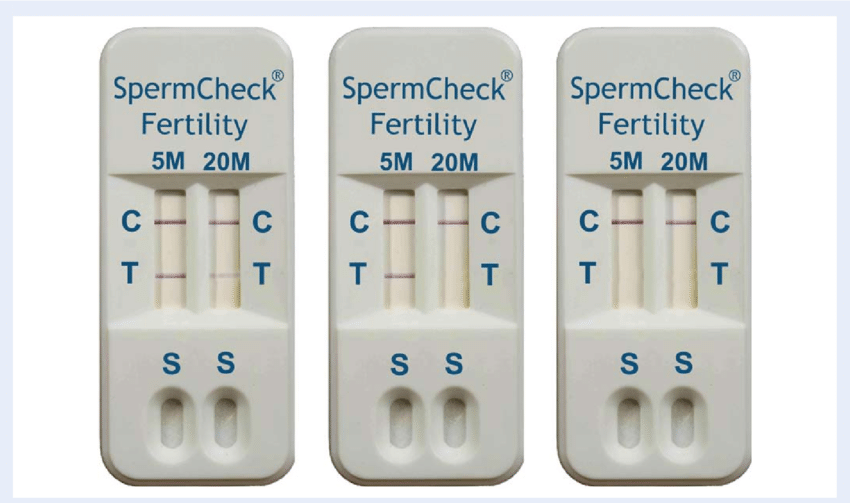When it comes to starting or growing a family, male fertility is just as important as female fertility — yet it is often overlooked. If you and your partner have been trying to conceive without success, or if you have concerns about your reproductive health, male fertility testing is a crucial first step.
This comprehensive guide will help you understand the purpose, types, and process of male fertility testing, what the results mean, and how expert care can support your journey to parenthood.
🌱 Why Is Male Fertility Testing Important?
Male factors contribute to approximately 40–50% of infertility cases worldwide. Testing helps to:
- Diagnose potential issues affecting sperm production or function
- Identify underlying medical conditions impacting fertility
- Guide appropriate treatment plans — from lifestyle changes to advanced assisted reproduction techniques
- Provide clarity and peace of mind for couples struggling to conceive
Early assessment can improve chances for successful conception and shorten the emotional and financial toll of infertility.
🧪 What Does Male Fertility Testing Include?
Male fertility evaluation typically involves a series of assessments designed to analyze the quantity, quality, and function of sperm, as well as overall reproductive health.
1. Medical and Lifestyle History
Your doctor will review:
- Past medical conditions or surgeries (e.g., infections, testicular injury)
- Sexual history and function (e.g., erectile or ejaculatory problems)
- Lifestyle factors (e.g., smoking, alcohol, occupational exposures)
- Medications and supplements
- Family history of infertility or genetic conditions
2. Physical Examination
- Evaluation of the penis, testicles, and prostate
- Checking for varicoceles (enlarged veins that affect sperm quality)
- Assessment of secondary sexual characteristics
3. Semen Analysis
The cornerstone of male fertility testing, semen analysis evaluates:
- Volume: Amount of ejaculate produced
- Concentration: Number of sperm per milliliter
- Motility: Percentage of moving sperm and their movement quality
- Morphology: Shape and structure of sperm
- pH and Liquefaction: Semen quality parameters
Typically, two to three samples collected on separate days are analyzed to confirm results.
4. Hormone Testing
Blood tests assess hormones that regulate sperm production, such as:
- Testosterone
- Follicle-stimulating hormone (FSH)
- Luteinizing hormone (LH)
- Prolactin
- Estradiol
Hormonal imbalances can signal issues with testicular function or the pituitary gland.
5. Genetic Testing
Recommended if severe sperm abnormalities or azoospermia (no sperm in semen) are found, to detect chromosomal abnormalities or Y chromosome microdeletions.
6. Imaging Studies
- Scrotal Ultrasound: To evaluate testicular structure and detect varicoceles
- Transrectal Ultrasound: To assess seminal vesicles and prostate, if obstruction is suspected
💡 When Should You Get Tested?
Male fertility testing is advised if:
- You and your partner have been trying to conceive for over 12 months without success (or 6 months if the female partner is over 35)
- There are known risk factors such as undescended testicles, infections, or hormonal disorders
- Previous fertility issues or genetic conditions exist
- You experience sexual dysfunction or ejaculatory problems
Early evaluation can help identify treatable conditions before time-sensitive declines in fertility.
👨⚕️ What Happens After Testing?
Based on your test results, your fertility specialist will:
- Explain findings clearly and compassionately
- Recommend lifestyle modifications (e.g., quitting smoking, managing weight)
- Prescribe medications or hormone therapy if needed
- Suggest surgical interventions, such as varicocele repair, if appropriate
- Discuss assisted reproductive technologies (ART), including IVF or ICSI, for more severe cases
🇰🇷 Why Choose Korea for Male Fertility Testing?
South Korea offers state-of-the-art diagnostic facilities and highly experienced specialists in male reproductive health, with benefits including:
- Cutting-edge laboratory technology for accurate semen and hormonal analysis
- Comprehensive genetic screening services
- Integrated care combining urology, endocrinology, and reproductive medicine
- Multilingual support and personalized treatment plans for international patients
- Affordable pricing compared to Western countries without compromising quality
💬 Real Patient Stories
“After years of trying, my fertility tests revealed varicocele as the cause. Treatment in Korea was thorough and professional, and now we are expecting our first baby.”
— Joon H., 32
“The team helped me understand my condition and offered clear options. I felt supported every step of the way.”
— Mark T., 38
🧠 Frequently Asked Questions (FAQs)
Q: How should I prepare for a semen analysis?
A: Abstain from ejaculation for 2–5 days before the test, avoid alcohol and excessive heat, and provide the sample in a clean container.
Q: Can stress affect sperm quality?
A: Yes, chronic stress can negatively impact sperm production and function.
Q: Is low sperm count always permanent?
A: No, many causes are temporary or treatable with medication, lifestyle changes, or surgery.
Q: What if my semen analysis is normal but we still can’t conceive?
A: Fertility is complex; further evaluation of both partners and advanced testing may be necessary.
🌟 Taking the Next Step Toward Fatherhood
Male fertility testing is a vital part of your reproductive health journey. With early diagnosis, personalized treatment, and expert support, many men overcome fertility challenges and achieve their dreams of fatherhood.




